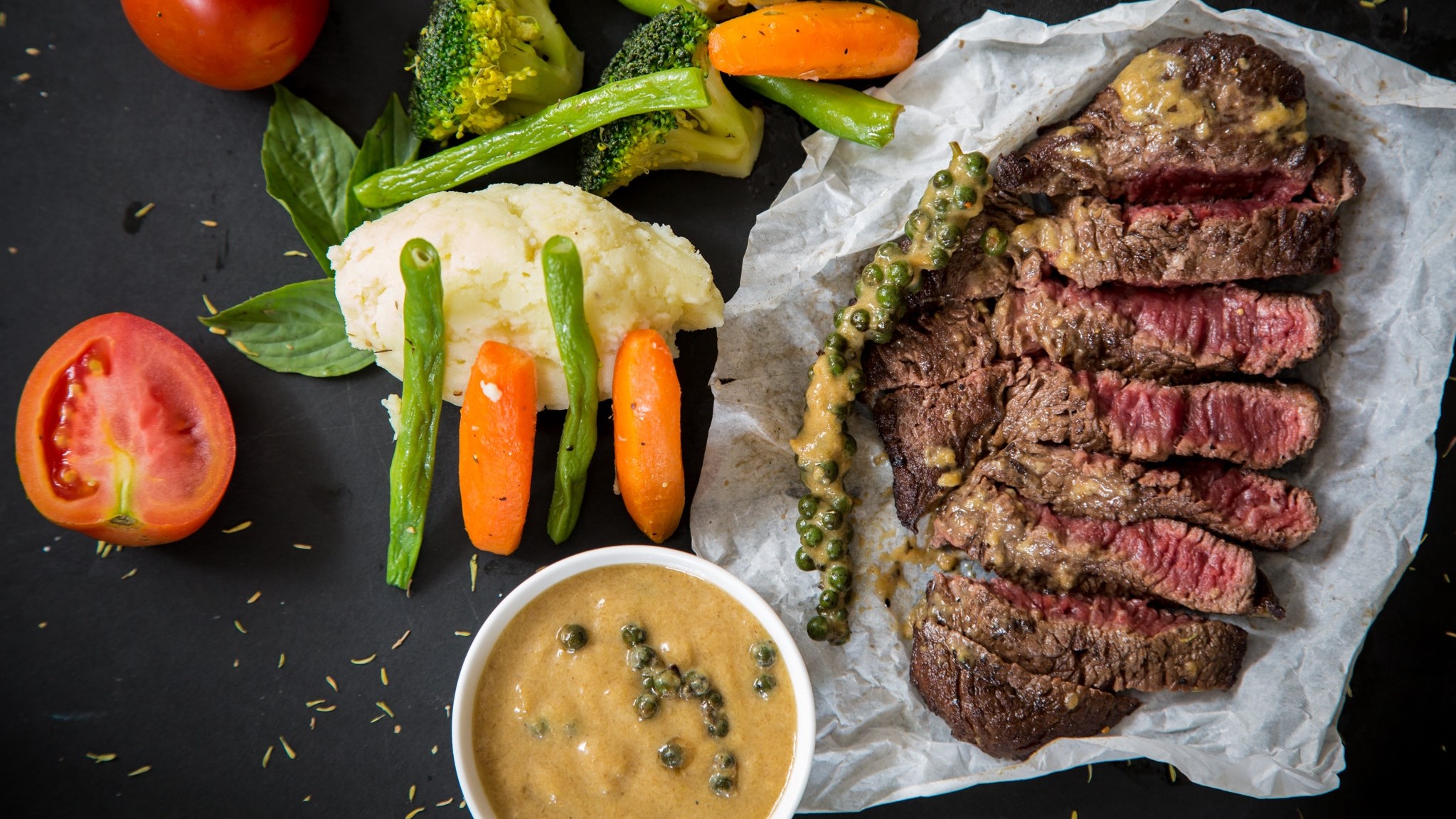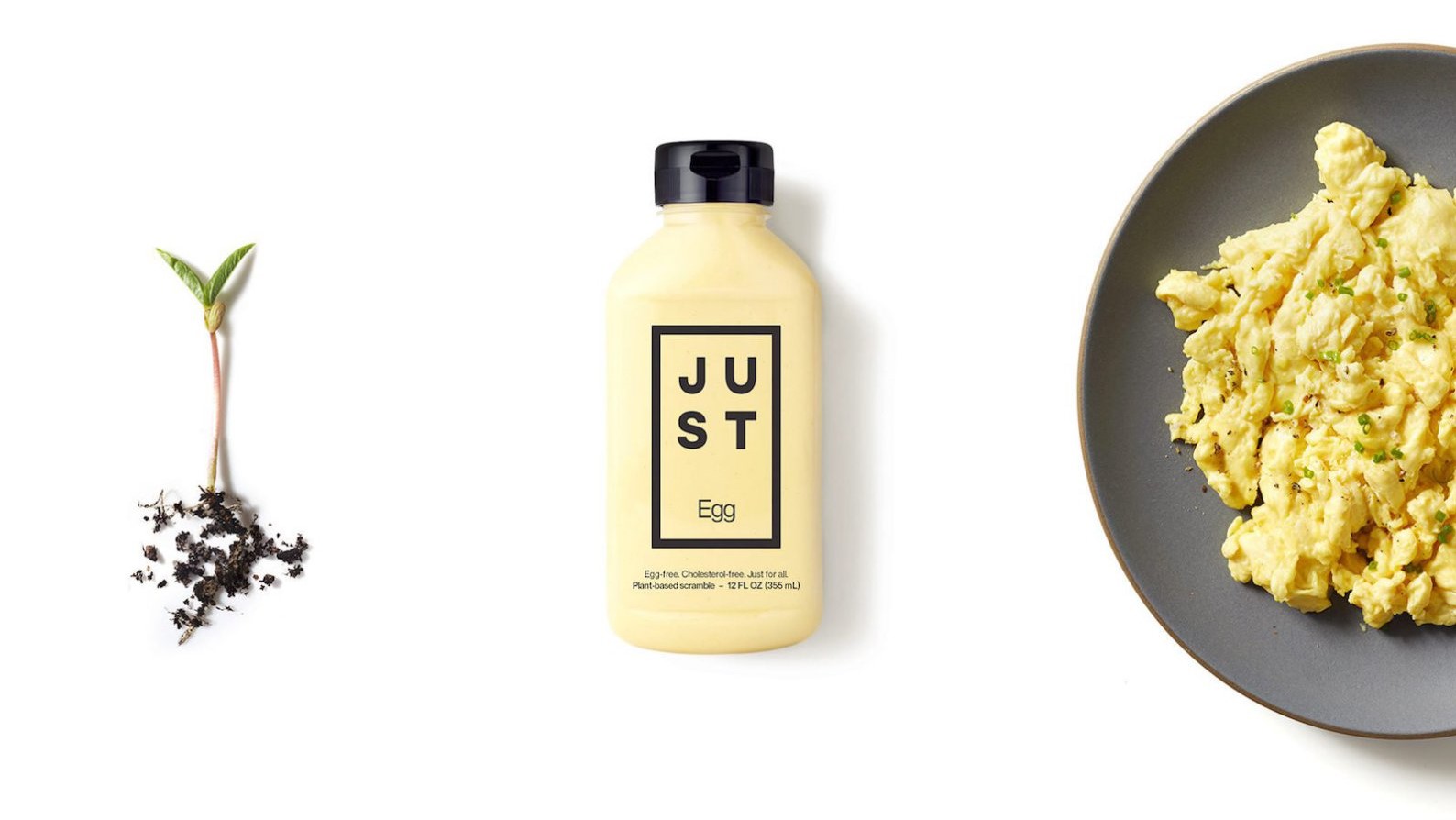March 2021: The Month in Review

After a strong start to the new year, this March continued cellular agriculture’s momentum into the new year with an incredible end of the first quarter. Cellular agriculture is the field of producing animal products, like meat, dairy, and collagen, directly from cell cultures instead of raising animals. Compared to conventional livestock agriculture, cellular agriculture offers a more sustainable way to produce animal products to meet the growing global demand without requiring animals.
From 6 new investment rounds to new industry partnerships and announcements, we highlight what happened this March in the cellular agriculture field.
Investments
Meatable
Meatable shared that the Dutch startup raised a massive $47 million in Series A funding. Based in the Netherlands, Meatable is a startup that uses cellular agriculture to grow cell-based meat, such as beef and pork.
The largest Series A round to date for a European cellular agriculture company, the funding round included a range of investors, such as Dr. Rick Klausner, DSM Venturing, Dr. Jeffrey Leiden, and Section 32. Existing investors in Meatable’s Series A included BlueYard Capital, Agronomics, Humboldt, and Taavet Hinrikus.
 Proposed future cultured meat facility design by Meatable
Proposed future cultured meat facility design by Meatable
Meatable plans to use the new funding round to advance its small-scale production at the Biotech Campus Delft and diversify its product portfolio. The new funding round brings Meatable’s total funding to $60 million. In December 2019, Meatable raised a $10 million seed extension round and a $3.5 million seed round in September 2018.
MeaTech 3D
Israeli company MeaTech 3D became the first cell-based meat company to go public on the Nasdaq stock exchange in the US. Through the public offering, the company raised $28 million in funding to advance its research and development. While the first cell-based meat company to go public in the US, the 3D bioprinting company became the first publicly traded cell-based meat company in Israel in 2019 by merging with Israeli company Ophectra Real Estate and Investments Ltd.

Considering the attention that the plant-based meat sector received following Beyond Meat’s public offering in May 2018, how will MeaTech’s public offering impact investor attention on the cell-based meat and wider cellular agriculture sector? Beyond being the first cell-based meat company to go public, in 2020, MeaTech became the first company to acquire another cell-based meat startup, European cell-based fat company Peace of Meat for EUR 15 million.
Nourish Ingredients
Based in Canberra, Australia, new startup Nourish Ingredients raised $11 million in funding to use cellular agriculture to develop animal fats directly from cell cultures. Founded by James Petrie and Ben Leita, Nourish Ingredients aims to produce animal fats to enhance the taste and flavour of both plant-based and cell-based meat products. Using the company’s proprietary yeast fermentation platform, Nourish Ingredients can produce the same animal fats found in animal products like meat.

Nourish’s funding round was led by Horizon Ventures and Main Sequence Ventures, the venture firm founded by Australia’s national science agency. Both co-founders Petrie and Leita previously worked with Australia’s national science agency CSIRO before spinning out Nourish Ingredients to advance the future of food field.
Bluu Biosciences
In Berlin, Germany, new cell-based seafood startup Bluu Biosciences announced the startup raised EUR 7 million (USD $8.2 million) in its funding round. Investors in Bluu Biosciences funding round include Manta Ray Ventures, Norrsken VC, Be8, CPT Capital and Lever VC.
The first European startup to focus on cell-based seafood, Bluu Biosciences aims to produce a range of fish meats, including trout, salmon, and carp. Considering the global popularity of carp fish, the Bluu team find the species as an attractive choice to begin with.

Interestingly, according to co-founder Sebastian Rakers, Bluu Biosciences has begun to develop cell lines for the different fish species. Developing a stable and immortal stem cell line to produce cell-based meat and seafood is one of the scaling challenges for the cellular agriculture field, and it is promising that Bluu is already addressing the challenge with Rakers’ background.
Prior to co-founding Bluu Biosciences, Rakers was a marine and cell biologist at the Fraunhofer Institute, one of Europe’s celebrated research institutes. While at the institute, Rakers cultivated and immortalized cell lines from more than 20 different species of fish.
Mirai Foods
Mirai Foods announced the company raised an additional $2.2 million in a second close of its seed round, bringing its total seed funding to $4.5 million. Based in Zurich, Switzerland, Mirai Foods is the first Swiss startup to use cellular agriculture to grow cell-based meat. In January, Mirai Foods announced the first close of its seed round of $2.4 million in seed funding. Mirai Foods plans to use the funding round to accelerate development of its cell-based meat and work on transforming its prototype into a commercial product.
 Mirai Foods cell-based beef proof of concept
Mirai Foods cell-based beef proof of concept
From family offices and mission-aligned individuals to venture funds, Mirai Foods’ seed round consisted of many different investors. New and existing investors in Mirai’s extended seed round include German family office FRIBA Investments, Swiss venture firm Skyviews Life Science, Team Europe, and the venture arm of European food conglomerate Paulig Group, PINC. The funding round also featured Ulf Claesson, a former executive at Hewlett-Packard and IBM, as an individual investor.
While the startup is focusing on creating a variety of product lines, Mirai Foods’ first product will be a cell-based beef. The company aims for a test launch of its cell-based beef product during the second half of next year.
MeliBio
Cell-cultured honey, anyone? MeliBio announced the new startup raised its pre-seed funding round of $850,000 to develop honey directly from cell cultures in California. Founded by Aaron Schaller and Darko Mandich, the startup recently went through the Big Idea Ventures New York accelerator program and attracted nine different investors. Investors in the pre-seed funding round include Big Idea Ventures, Joyance Partners, 18.ventures, Sustainable Food Ventures, Sparklabs, Cultiv8, Capital V, Courtney Reum, and two family offices.

Moving forward, MeliBio plans to soft launch its first honey product at the end of the year as an ingredient in other food products to food service companies. MeliBio will initially aim to fulfill orders it received during the Big Idea Ventures’ accelerator program. After its soft launch, MeliBio aims to further expand its commercial rollout in the first half of 2022.
Clara Foods Launches First Product: Animal-Free Pepsin
Clara Foods announced the launch of its first product: an animal-free pepsin protein. Based in San Francisco, California, Clara Foods is a startup that uses cellular agriculture to produce animal-free proteins, specifically egg proteins. By designing yeast to produce the same proteins found in an egg from a chicken, Clara Foods can make the same egg white. Without requiring the chicken.
Traditionally sourced from animals like pigs, pepsin is a digestive enzyme commonly used as a processing aid for a range of products, including food, beverages, and dietary supplements. By producing pepsin in an animal-free manner, Clara Food states its product has the same functionality as conventional pepsin with the added benefits of safe and consistent sourcing, quality control, price stability, and increased product sustainability.

According to Clara Foods CEO Arturo Elizondo, the Covid-19 pandemic accelerated the rate at which companies are trying to move away from animals in their supply chain, including processing aids, and Clara Food’s animal-free proteins offer that solution. In addition, using Clara Food’s animal-free protein would help more companies looking to make claims that their product is vegan, Kosher, or Halal. Last month, Clara Foods shared that the company has completed self-GRAS assessments of its products, and has filed GRAS applications with the FDA.
Clara Foods’ animal-free pepsin product will be distributed by Ingredion, a global ingredients distributor in over 120 countries. Clara Foods first announced its global partnership with Ingredion in April 2019 along with its Series B funding announcement. According to the partnership, Ingredion will help Clara Foods develop, market, and distribute its animal-free proteins globally.
Following the launch of its first product, Clara Foods aims to commercialize its first animal-free egg protein products. Clara Foods plans to launch its highly soluble egg protein for beverages later this year as well as an egg white replacer. Through its different protein solutions, Clara Foods aims to ultimately be the world’s largest supplier of egg proteins by 2028.
Aleph Farms Announces Partnership with BRF SA in Brazil
This month, cell-based meat company Aleph Farms announced a partnership with BRF S.A., a global Brazilian meat and food company, to bring cell-based meat to Brazil. According to the Memorandum of Understanding, both companies will co-develop and produce cell-based meat using Aleph Farms’ proprietary BioFarm production platform. BRF will also distribute the cell-based meat in Brazil.
As one of the largest beef producers in the world, it is promising to see Aleph Farms form a partnership with one of the largest meat producers in the world. In January 2021, Aleph Farms announced a partnership with Mitsubishi Group’s Food Industry Group.
Avant Meats Announces Partnership with QuaCell
Hong Kong-based Avant Meats announced the cell-based seafood startup partnered with QuaCell, an emerging biopharmaceutical industry company in China, to accelerate its scale-up process by at least 12 months. According to the partnership, Avant Meats will combine its cell cultivation biotechnology platform with QuaCell’s accredited facilities in China, which are equipped with bioreactors up to 2,000 liters.

In October 2019, Avant Meats showcased its cultured fish maw bites
Prior to the partnership, Avant Meats shared that the startup reduced the cost of producing its cell-based fish by 90% by using its own animal-free cell culture media. Through the new partnership, Avant Meats aims for a further 75% cost reduction by transitioning from pharma grade ingredients to food grade ingredients and optimizing its cell culture media formulation for large-scale bioreactors.
In January 2021, Avant Meats announced a strategic partnership with Vietnamese seafood giant Vinh Hoan Corporation, the largest pangasius fish producer in the world, to accelerate commercialization of its cell-based seafood.
TurtleTree Scientific Announces with Partnership with JS Biosciences
TurtleTree Scientific, the B2B arm of Singapore-based TurtleTree Labs, announced a partnership with JSBiosciences to develop cell culture media at scale. According to the letter of intent, JSBiosciences will provide TurtleTree Scientific’s customers with a supply of food grade basal media and media formulation services. The partnership also expands to other services, including large scale manufacturing.
Leveraging its expertise in media development and local raw materials supply chain, JSBiosciences will also help TurtleTree Scientific achieve pilot production capacity and, subsequently, commercial production scale in Singapore. In February 2021, TurtleTree Scientific announced a partnership with Dyadic to scale growth factors for cell culture media.
Good Food Institute Commissions LCA and TEA Reports
The nonprofit Good Food Institute announced the publication of a new report series about the environmental sustainability and economic feasibility of cell-based meat. Commissioned by GFI, the studies were carried out by environmental consultancy CE Delft to independently conduct a life cycle assessment (LCA) and techno-economic assessment (TEA) of cell-based meat.
The verdict? If renewable energy is used in the production process, cell-based meat can have a lower environmental footprint compared to conventional meat production and, under the right circumstances, cell-based meat can compete on costs with conventional meat by 2030.
According to the LCA, renewable energy sources will be critical for the environmental sustainability of cell-based meat. If renewable energy sources are used, the LCA projects that the carbon footprint of cell-based meat can drop by 80%. In CE Delft’s model, cell-based meat produced via renewable energy reduces the global warming impacts of conventional chicken by 17%, pork by 52%, and beef by between 85 and 92%.

The importance of a decarbonized energy source aligns with a previous study published in February 2019 about the climate impact of cell-cultured meat. Without reducing our dependence on fossil fuels, the previous paper warns that, at scale, cell-cultured meat may not be any more sustainable for our climate than conventional animal agriculture. CE Delft’s LCA also confirmed previous studies that cell-based meat can reduce the amount of land required to produce meat.
According to the TEA, CE Delft’s study found that cell-based meat can compete with conventional meat on cost by being as low as $5.66 per kilogram, or $2.57 per pound from a hypothetical production facility in 2030. It is important to note that this price point would only be possible in the right circumstances, where the cost to scale cellular agriculture production is reduced through technology advancements as well as relaxed financial terms for companies. The projected price also reflects the manufacturing price of cell-based meat, not the price consumers may see when buying.
Ultimately, as the first LCA and TEA studies to use real data from cell-based meat companies and supply chain players, it is promising to see pathways for cell-based meat production to be both environmentally sustainable and economically competitive within the decade. As more companies enter the field to develop its supply chain, there may be more opportunities for costs to further reduce from the projections in the CE Delft reports.
Looking forward to later sharing a detailed breakdown about the studies.
AMPS Innovation and NFI Submit Letter for ‘Cell-Cultured’ Fish Labelling
How will cell-based seafood be labelled in the US? Cell-based meat regulatory coalition AMPS Innovation and the National Fisheries Institute (NFI) jointly submitted comments to the US FDA about that question calling for consumer transparency about cell-cultured seafood products. In the letter, regarding labeling, both groups urged the FDA to adopt the term cell-cultured to support uniform labelling of cell-cultured food products within the seafood category. Unlike cell-based meat and poultry, only the FDA will oversee the labeling of cell-cultured seafood in the US.
In the letter, AMPS Innovation and NFI also called for truthful and descriptive communication for consumers to understand how cell-cultured seafood is produced as well as appropriate nutrition and allergenicity labels for any consumer allergic to seafood.
 Product showcase by AMPS Innovation member BlueNalu
Product showcase by AMPS Innovation member BlueNalu
The joint letter is the second time AMPS Innovation has partnered with a conventional food and agriculture organization to align on labelling-related policies. In October 2020, AMPS Innovation and the North American Meat Institute (NAMI) wrote a letter to the US Department of Agriculture’s Food Safety and Inspection Service (FSIS). In the letter, AMPS Innovation and NAMI stated that labelling for cell-cultured meat products should be mandatory. The letter also recommended the FSIS issue an Advance Notice of Proposed Rulemaking (ANPR) to get more information and supporting data about cell-based meat.
Government regulation has been a major question moving forward for the field, particularly for cell-based meat companies, and it is promising to see both AMPS Innovation partner with both NFI and NAMI to propose a way forward on how to regulate cell-based meat and seafood in the US.
Interestingly, at the same time AMPS Innovation submitted its letter, cell-based seafood startup Wild Type conducted a study on how consumers would respond to different names about seafood that comes directly from cell cultures instead of animals. While the study did not find a single term that most people referred to using cellular agriculture, Wild Type supports using the term cell-cultivated as the best way to communicate with consumers about how its product was made and its benefits. A study in July 2020 found that ‘cell-based’ may be the most suitable common or usual name of seafood grown directly from cells.
Shiok Meats Survey: Singapore is Ready for Cell-Based Seafood
According to a survey conducted by cell-based seafood company Shiok Meats in Singapore, more 78% of people are willing to try cell-based seafood after being shown a visual infographic explanation of the field. Public perception of cell-based meat is a major question for the field, and the results from Shiok Meats’ survey is promising for consumer acceptance when explained why and how behind cell-based meat. Interestingly, 56% of the surveyed had previously understood or previously heard about cell-based seafood.
Orbillion Bio Goes to Y Combinator
Orbillion Bio shared the new startup was part of the Y Combinator program, a leading accelerator for startups. Based in Berkeley, San Francisco, Orbillion Bio aims to accelerate the speed of cell line development with their unique technology platform to produce cell-based meat. Orbillion Bio ultimately aims to supply cell lines from different heritage breeds that are tasty and more adept to grow in cell cultures to different cell-based meat producers. Orbillion Bio also shared that the startup has raised $1.4 million in seed funding from investors like Joyance Partners and VentureSouq.
Orbillion Bio was the first American cell-based meat company to go through the Y Combinator program. Previous cellular agriculture startups to go through the program include Shiok Meats, Shiru, and Future Fields.
New Harvest Launches New Mission
After years of supporting researchers to build the field, cellular agriculture non-profit New Harvest announced a new mission for the organization: to maximize the positive impact of cellular agriculture on the world. From holding the field accountable for its claims to improving its accessibility and applicability, New Harvest plans to continue to support primary research for the field as well.

In February 2021, New Harvest announced its cultured meat safety initiative to highlight key areas that need to be addressed for the safety of cell-based meat food products. The initiative brought together cellular agriculture companies from around the world to discuss the important pre-commercial topic and to advance the safety conversation in cellular agriculture. In December 2020, New Harvest received a charitable donation from Robert Downey Jr’s FootPrint Coalition to support the cultured meat safety initiative.
Cellular Agriculture Australia Launch Pathways Project
The nonprofit Cellular Agriculture Australia (CAA) launched a new interactive tool called Pathways to help students and job seekers find technical roles within cellular agriculture research the country. By breaking down key pain points in the field and connecting them to different Majors available in Australian universities, CAA aims to help develop a talent pipeline for the cellular agriculture field in Australia and promote awareness of the field in the country.
As the field grows, there will be a need for more talent to fill all the upcoming job opportunities in the field. From Vow Food’s recent funding round in January to Nourish Ingredients recent raise, the cellular agriculture field is growing in Australia and around the world.
In the World of Alt Proteins
Eat Just
Eat Just announced the company raised a massive $200 million funding round. Founded by Josh Tetrick and Josh Balk, Eat Just is an alternative protein company that produces both a plant-based egg product and also uses cellular agriculture to grow cell-based meat, specifically chicken. In December 2020, Eat Just became the first company in the world to bring cell-based meat to market in Singapore.

Eat Just plans to use the funding round to globally expand its plant-based egg product and further develop its cultured chicken meat. While it is unclear how much of Eat Just’s funding will be allocated to its cellular agriculture department, the company shared plans to reduce the cost of its cultured meat production, scale its commercial manufacturing operations in Singapore, and advance work on other types of meats.
Oatly
Plant-based milk company Oatly announced a partnership with Yeo’s to jointly invest $30 million to produce Oatly’s oat milk outside of the US. Based in Singapore, Yeo’s is recognized for its range of Asian food and drink products. According to the partnership, Yeo’s will manage, operate, and maintain the new facility producing Oatly’s product to supply the Asian market. This is the first time Oatly’s products will be manufactured in Asia, and the facility will help Oatly meet the growing demand for its products across Asia. Yeo’s facility will start producing oat milk by mid-2021, and the first batch is designated for the Chinese market.
Conclusion
From a range of funding rounds to a number of new partnerships and initiatives, March was a remarkable end to the first quarter for the cellular agriculture field. Following the major landmarks the field achieved in 2020, the first quarter of 2021 has certainly carried on the field’s momentum to build the future of food.
Spanning four continents, the new funding announcements wrapped up a record-breaking quarter for cellular agriculture investments. Including MeaTech 3D’s public offering on the US stock market, cellular agriculture companies raised over $220 million* in the first quarter of 2021. Beyond being the best first quarter to date for the field, this is more funding than all investments in the cellular agriculture food field in the year 2019. At 13 disclosed deals, this was also the most active quarter to date building the future of food.
A number of new partnerships highlight how cellular agriculture companies, especially startups based in Asia, are looking to work with experts in both the food and biotech sectors to help scale production and distribution. As the year progresses, there will likely be more partnerships as more traditional food companies look to get involved in the novel field.

While the field continues to accelerate with a successful first quarter, it is important to remember that cellular agriculture, alongside alternative proteins, will be one of many ways we will feed a growing global population. For example, a recent analysis found that meat consumed at retail in the US increased by 19.2% in 2020 to $82.5 billion.
While meat alternatives continue to increase in popularity, the increase in meat sales highlight that most consumers are not yet ready to change over from meat to plant-based alternatives. The best option is to find a better way to produce the same meat. That is exactly what cellular agriculture offers. For the future of food.
*This number does not include Eat Just’s recent $200M funding round because it is unclear how much of the funding round will be allocated towards its cellular agriculture department.
Stay connected with CellAgri
Join our mailing list to receive the latest news and updates weekly from the cellular agriculture industry. Your information will not be shared.



